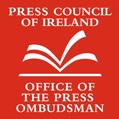
During the Summer, I wrote about the decision of the UK’s Court of Appeal in Associated Newspapers Ltd v Keith Burstein [2007] EWCA Civ 600 (22 June 2007), to the effect that an opera critic’s review of the defedant’s opera Manifest Destiny was covered by the defence of fair comment. The defendant sought to appeal to the House of Lords. Now, via MediaPal@LSE (see also Media Law Prof Blog) I learn that, at the end of last month, the House of Lords has decided not to hear the appeal on the usual ground the case “does not raise an arguable point of law of general public importance which ought to be considered by the House”. According to Ben Dowell in The Guardian, however, the undaunted composer intends to bring the case to the European Court of Human Rights (ECHR). I wrote at the time that the Court of Appeal decision was plainly good common sense, and very welcome for it; I am glad that the House of Lords has declined to hear the appeal; and I fully expect the European Court of Human Rights to dismiss the case as manifestly ill-founded (within the meaning of Article 35(3) of the European Convention on Human Rights (pdf)).…
Category: Defamation
Should Jameel spell the end of ‘libel tourism’ to the UK?
 An essay by Rachel Donadio, in the New York Times Sunday Book Review of 7 October 2007, entitled Libel Without Borders (hat tip: Law Librarian Blog), begins:
An essay by Rachel Donadio, in the New York Times Sunday Book Review of 7 October 2007, entitled Libel Without Borders (hat tip: Law Librarian Blog), begins:
When it first appeared in 2006, Alms for Jihad, an academic book on Islamic charitable networks by two American scholars, drew scant attention. It sold a modest 1,500 copies and received few reviews. But in recent weeks the book has become an international cause célèbre, after Cambridge University Press agreed to pulp all unsold copies in a defamation settlement.
The angry and defiant reaction of Robert Collins, one of the authors, can be read here (with an update here; and there’s more on the story generally from American Libraries, Chronicle of Higher Education, Critical Mass, Democracy Project, FrontPageMagazine.com, Human Events, Mark Steyn, and wikipedia). In what must be an oversight, the book still remains in CUP’s online catalogue (and that’s the cover image, on the top left of this post, from the same site); I can’t find it on Amazon, but this entry is still on the Barnes & Noble website.
This species of forum shopping is called libel tourism; it is said that it chills investigative journalism; and Alms for Jihad is not the only example …
Press Ombudsman
 I concluded yesterday’s post by wondering what the impact of the Defamation Bill, 2006 might be upon the decision of Charlton J in Leech v Independent Newspapers (High Court, unreported, 28 June 2007). After that decision was handed down, the Department of Justice confirmed that the Bill, which failed to complete its passage through the Oireachtas during the lifetime of the last government, is to be re-entered on the order paper of the new Seanad in the Autumn (see Irish Times (sub req’d)). Though it is a flawed Bill, it is much better than the existing position; so this would be good news, were it not for the fact that the Irish Times predicts the Bill will be altered to reflect a more minimalist approach to libel reform.
I concluded yesterday’s post by wondering what the impact of the Defamation Bill, 2006 might be upon the decision of Charlton J in Leech v Independent Newspapers (High Court, unreported, 28 June 2007). After that decision was handed down, the Department of Justice confirmed that the Bill, which failed to complete its passage through the Oireachtas during the lifetime of the last government, is to be re-entered on the order paper of the new Seanad in the Autumn (see Irish Times (sub req’d)). Though it is a flawed Bill, it is much better than the existing position; so this would be good news, were it not for the fact that the Irish Times predicts the Bill will be altered to reflect a more minimalist approach to libel reform.
Whatever else is excised, it is certain that the provisions relating to the Press Council and Press Ombudsman will be retained, not least because the membership of the Council was announced early in the Summer, and the Ombudsman has recently been appointed …
Defamation, privilege, and a public interest defence, in the Irish High Court
 At the end of June, communications consultant Monica Leech lost a high-profile libel action against the Irish Independent; in essence, the jury found that the article in question by Frank Kahn did not bear the defamatory meanings which she had sought to attribute to it. Given the profile of the case, there was much media (Breaking News | Irish Independent | Irish Times (sub req’d) | Irish Times (sub req’d) | RTÉ) and online (Blurred Keys | JC Skinner | Of Laws and Men | Our Man in Gdansk) reaction.
At the end of June, communications consultant Monica Leech lost a high-profile libel action against the Irish Independent; in essence, the jury found that the article in question by Frank Kahn did not bear the defamatory meanings which she had sought to attribute to it. Given the profile of the case, there was much media (Breaking News | Irish Independent | Irish Times (sub req’d) | Irish Times (sub req’d) | RTÉ) and online (Blurred Keys | JC Skinner | Of Laws and Men | Our Man in Gdansk) reaction.
However, there is more to the case than the newsworthiness of a high profile libel loss. In fact, Mr Justice Charleton (pictured above left) made an important ruling during the course of the trial, which as Mary Carolan pointed out in the Irish Times the following Saturday gives more leeway to media on libel defence (sub req’d). The Best of Both Worlds described it as a slight gain for free speech. I think it is rather more than that. I think that it is an important affirmation of the acceptance into Irish law of a defence (which the judge called a “public interest” defence) which has been developing and strengthening elsewhere in the common law world.…
The manifest destiny of critics’ fair comment
In my post on defamatory reviews a few days ago, I wrote that critics will usually be able to rely on the defence of ‘fair comment’. Now comes news (hat tip: Daithí) that the Court of Appeal for England and Wales thinks so too!
To be able to rely on this defence, the relevant statement must indeed have been a comment (and recognisably so, as opposed to an allegation of fact, for example); it must have been based on facts that are true (or protected by privilege); it must have been made on a matter of public interest (and the courts are now taking quite a broad view of what constitutes the public interest for this purpose); and it must have been one which could have been made by an honest person (that is to say: it must have been ‘fair’). In a relatively recent important case, Lord Nicholls said of this last requirement:
…Finally, the comment must be one which could have been made by an honest person, however prejudiced he might be, and however exaggerated or obstinate his views. It must be germane to the subject matter criticised. Dislike of an artist’s style would not justify an attack upon his morals or manners.
Unpalatable – defamatory restaurant reviews
 I’ve always quite fancied the idea of being a food critic: I like food, and I can be critical (just like the guy in the cartoon on the left ‘The Food Critic Orders Dinner’ – click on it to see it full size in its original context); so what’s not to like? Well, a flurry of litigation in various jurisdictions over the last few months has made me reconsider. The most recent is the decision of the High Court of Australia in John Fairfax Publications Pty Ltd v Gacic [2007] HCA 28 (14 June 2007) (hat tips: Steve Hedley (off-blog) and the indefatigable Peter Black’s Freedom to Differ) which is making news in Australia for its holding that a restuarant critic can be liable for a defamatory review. There have been reactions of horror, but this is not a remarkable holding at all, either in principle or in practice. …
I’ve always quite fancied the idea of being a food critic: I like food, and I can be critical (just like the guy in the cartoon on the left ‘The Food Critic Orders Dinner’ – click on it to see it full size in its original context); so what’s not to like? Well, a flurry of litigation in various jurisdictions over the last few months has made me reconsider. The most recent is the decision of the High Court of Australia in John Fairfax Publications Pty Ltd v Gacic [2007] HCA 28 (14 June 2007) (hat tips: Steve Hedley (off-blog) and the indefatigable Peter Black’s Freedom to Differ) which is making news in Australia for its holding that a restuarant critic can be liable for a defamatory review. There have been reactions of horror, but this is not a remarkable holding at all, either in principle or in practice. …
Applications for the Position of Press Ombudsman Are Now Sought
 The Business This Week section of today’s Irish Times carries an advertisment (on page 18), under the heading used as the title to thise post, seeking applications for the position of Press Ombudsman. The advertisment is available online here (from Grant Thornton‘s recruitment arm).
The Business This Week section of today’s Irish Times carries an advertisment (on page 18), under the heading used as the title to thise post, seeking applications for the position of Press Ombudsman. The advertisment is available online here (from Grant Thornton‘s recruitment arm).
The Press Ombudsman is a crucial part of the press industry’s Press Council package, and will be critical not only to the efficient working of the complaints system but also as a consequence to the public legitimacy of the entire project. According to the Press Council website [update (3 January 2008): the website has been redesigned and this link is no longer active]:
…The Press Ombudsman
The Press Ombudsman will be appointed by the Press Council, is and will be the public face of Irish press regulation; s/he is the person who will receive complaints from members of the public, consider whether they are valid, and then seek to resolve them to the satisfaction of everyone involved. The Press Ombudsman will deal with the majority of complaints by members of the public, however s/he will also has the option of referring difficult cases (or cases where those involved are dissatisfied with the decision) to the Press Council of Ireland.

